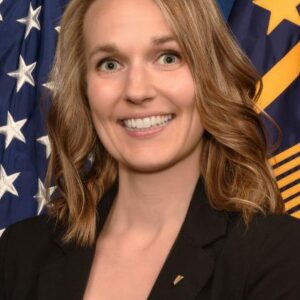Name: Jessisca Salyers
Title: Chief Learning Officer
Organisation: Veterans Health Administration
About:
Dr. Jessica Salyers is the Chief Learning Officer for the Veterans Health Administration, Institute for Learning, Education and Development (ILEAD). In her role overseeing 435 employees and $125M, she is responsible for providing the right learning, anytime, anywhere, to all VHA employees in the areas of clinical care, health care operations and administration, as well as leadership development, talent management, and succession planning. Dr. Salyers serves as the principal advisor to the Under Secretary for Health for the analysis, development, delivery, implementation, and evaluation of education, learning, development, and training programs, products, and services that support workforce development and continuing education for the Administration’s more than 377,000 health care professionals and staff, as well as 120,000 residents and trainees at over 1,255 sites, caring for 8.92 million Veterans. As an advocate and champion for transforming VHA into a learning organization, Dr. Salyers works with VA and VHA leaders to identify requirements and leverage collaborative and innovative education, training, leadership, and succession planning opportunities in support of Department and Administration goals and objectives.
Prior to her appointment, she served as the Executive Director for the Healthcare Leadership Talent Institute in VHA. Her previous positions in the Air Force include Chief Talent Management Officer for the Air Force Life Cycle Management Center; Deputy Executive Director, Chief of Staff, and Chief Learning Officer at the Air Force Research Laboratory, and others. She has ~20 years of experience in industrial/organizational psychology, organizational consulting, change management, leadership development, organizational development and strategic planning.
Dr. Salyers’ major awards include the Meritorious Civilian Service Award, Exemplary Civilian Service Award, Special Act or Service Award (multiple), Dayton Business Journal 40 Under 40 Award, and Leadership Dayton graduate.
She holds a doctorate in business/consulting psychology; a master’s degree in industrial/organizational psychology; and a bachelor’s degree in general psychology, criminal justice studies and sociology. Her specific areas of research interest and experience include survey assessment and design, information overload and future of work.

